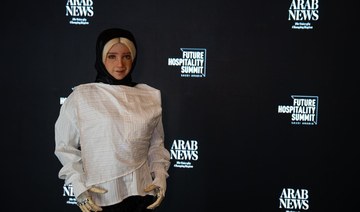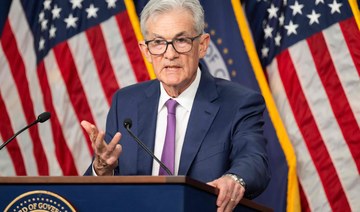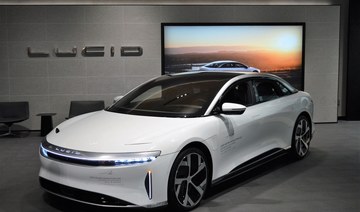WASHINGTON: Google will pay $170 million to settle allegations its YouTube video service collected personal data on children without their parents’ consent.
The company agreed to work with video creators to label material aimed at kids and said it will limit data collection when users view such videos, regardless of their age.
Some lawmakers and children’s advocacy groups, however, complained that the settlement terms aren’t strong enough to rein in a company whose parent, Alphabet, made a profit of $30.7 billion last year on revenue of $136.8 billion, mostly from targeted ads.
Google will pay $136 million to the Federal Trade Commission and $34 million to New York state, which had a similar investigation. The fine is the largest the FTC has levied against Google, but it’s tiny compared with the $5 billion fine against Facebook this year for privacy violations.
YouTube “baited kids with nursery rhymes, cartoons, and more to feed its massively profitable behavioral advertising business,” Democratic Commissioner Rohit Chopra said in a tweet. “It was lucrative, and it was illegal.”
The federal government has increased scrutiny of big tech companies in the past two years — especially questioning how the tech giants collect and use personal information from their billions of customers. Many of the huge Silicon Valley companies are also under antitrust investigations aimed at determining whether the companies have unlawfully stifled competition.
Kids under 13 are protected by a 1998 federal law that requires parental consent before companies can collect and share their personal information.
Tech companies typically skirt that by banning kids under 13 entirely, though such bans are rarely enforced. In YouTube’s lengthy terms of service, those who are under 13 are simply asked, “please do not use the Service.”
Yet many popular YouTube channels feature cartoons or sing-a-longs made for children. According to the FTC, YouTube assigned ratings to its video channels and even had a “Y” category directed at kids ages 7 or under, but YouTube targeted ads to those kids just as they would adults.
The FTC’s complaint includes as evidence Google presentations describing YouTube to toy companies Mattel and Hasbro as the “new Saturday Morning Cartoons” and the “#1 website regularly visited by kids.”
“YouTube touted its popularity with children to prospective corporate clients,” FTC Chairman Joe Simons said. But when it came to complying with the law, he said, “the company refused to acknowledge that portions of its platform were clearly directed to kids.”
According to the settlement, Google and YouTube will get “verifiable” consent from parents before they collect or use personal information from children. The company also agreed not to use data collected from children before.
YouTube has its own service for children, YouTube Kids. The kids-focused service already requires parental consent and uses simple math problems to ensure that kids aren’t signing in on their own.
YouTube Kids does not target ads based on viewer interests the way the main YouTube service does. But the children’s version does track information about what kids are watching in order to recommend videos. It also collects personally identifying device information.
On Wednesday, Google said that starting early next year, YouTube will also limit personalized ads on its main service for videos meant for kids. Google is relying on video creators to label such items, but will employ artificial intelligence to help.
YouTube won’t seek parental consent there, however, even on videos intended for children. YouTube is avoiding that precaution by instead turning off any personal tracking on those videos, saying it will collect only what is needed to make the service work. For such videos, YouTube also won’t offer features like comments and notifications.
Videos made for kids will still feature ads — just not the targeted, personal ads that generally bring in the most money for video creators.
“I think there has been a general anxiety of the kids and family community of creators on YouTube for quite some time,” said Chris Williams, CEO and founder of pocket.watch, a studio that works with many popular YouTube child stars, including Ryan ToysReview.
Pocket.watch helps YouTube stars expand beyond the streaming site and find new lines of business, from consumer products to network TV shows. Williams expects that business to become more important. But YouTube will still be the big way to build an audience, he said.
“It represents a part of the puzzle for your brand growth, a big one,” he said.
The settlement now needs to be approved by a federal court in Washington. As with the Facebook settlement, the FTC vote was 3-2, with both Democrats opposing it as too weak.
Sen. Edward Markey, a Massachusetts Democrat, said the settlement won’t turn YouTube into a safe place for children and “makes clear that this FTC stands for ‘Forgetting Teens and Children.’“
A coalition of advocacy groups that helped trigger the investigation said the outcome will reduce behavioral advertising targeting children.
Jeff Chester, executive director of the Center for Digital Democracy, said the settlement “finally forced Google to confront its longstanding lie that it wasn’t targeting children on YouTube.”
But he said the “paltry” fine signals that politically powerful corporations can break the law without serious consequences.
Other critics, including dissenting Democratic Commissioner Rebecca Slaughter, said too much responsibility was being placed on video creators to classify their own content as kid-oriented, and thus limited to less-lucrative ads. They say that potentially allows Google to turn a blind eye as some try to cheat the system to make more money through ad revenue sharing.
Andrew Smith, the FTC’s consumer protection director, acknowledged that concern as valid, but said YouTube “has strong incentives to police its platform” to avoid further action.
Google is already under a 2011 agreement with the FTC that barred it from mispresenting its privacy policy and subjected the company to 20 years of regular, independent privacy audits. Google was fined $22.5 million in 2012 for violating that settlement when the FTC found it improperly used tracking cookies on Apple’s Safari browser.
YouTube to pay $170M fine after violating kids’ privacy law
YouTube to pay $170M fine after violating kids’ privacy law

- Google was fined $22.5 million in 2012 for violating that settlement when the FTC found it improperly used tracking cookies on Apple’s Safari browser
UAE banks’ aggregate capital, reserves exceed $136bn
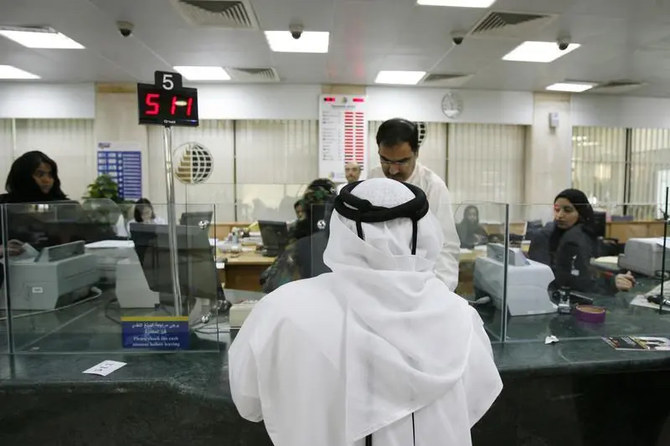
RIYADH: UAE-based banks’ aggregate capital and reserves reached 501.5 billion dirhams ($136 billion) at the end of February, up 14.4 percent year-on-year, according to new data.
The latest statistics from the Central Bank of the UAE showed that on a monthly basis, the total capital and reserves grew 0.95 percent, reflecting an increase of approximately 4.7 billion dirhams, according to the Emirates News Agency, also known as WAM.
This rise in figures falls in line with the central bank’s goal of enhancing monetary and financial stability in the country.
Moreover, the data indicated that national banks accounted for around 86.5 percent of the aggregate capital and reserves of banks operating in the UAE. At the end of February, they recorded a total of 433.7 billion dirhams, an annual rise of 14.6 percent.
On the other hand, the share of foreign banks settled at 13.5 percent, hitting 67.8 billion dirhams at the end of the same month, reflecting a 13.2 percent surge compared to the same period a year earlier.
Furthermore, at the end of February, the total capital and reserves of banks operating in Dubai alone stood at 246.4 billion dirhams, logging a year-on-year growth of 15.1 percent.
Additionally, banks operating in Abu Dhabi recorded around 217 billion dirhams, up 13 percent from the corresponding period in 2023.
Meanwhile, the cumulative capital and reserves of banks operating in other emirates combined reached an estimated 38.1 billion, reflecting a 15.5 percent climb in comparison to the same period a year prior.
In March, a top executive at Roland Berger said that UAE bank branches were witnessing the highest revenues in the region, amounting to $18.6 million per branch.
This was driven by the nation’s digital transformation, which enabled financial institutions in the Gulf Cooperation Council to reduce the number of banking branches by 328 within three years, Saumitra Sehgal, the global consulting firm’s head of financial services in the Middle East, told WAM, at the time.
Sehgal also pointed out at the time that the number of bank branches across GCC nations decreased from 4,067 at the end of 2019 to 3,739 by December 2022.
He further noted that banks in the UAE saw the highest number of outlets merge and reduce with the support of digital transformation between 2019 and 2022.
Saudi financial robo-advisory firm Abyan Capital secures $18m in funding
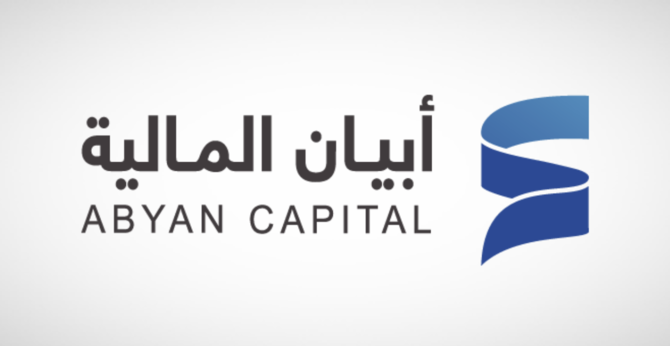
RIYADH: Financial robo-advisory firm Abyan Capital has secured $18 million in funding in further evidence of the growing confidence in the Kingdom’s artificial intelligence sector.
Led by STV, the funding round also saw participation from Aramco’s Wa’ed Ventures and RZM Investment.
Robo-advisors are digital platforms that utilize AI and machine learning algorithms to automate and optimize investment processes.
Founded in 2022 by Abdullah Al-Jeraiwi, Omar Al-Mania and Saleh Al-Aqeel, Abyan Capital is a financial services company that provides an automated solution and portfolio management for long-term investments.
“Abyan Capital stands out by unlocking the SR300 billion ($80 billion) investment management and wealth advisory sector for investors from all backgrounds in Saudi Arabia, through its mobile-first, robo-advisory model,” Yazeed Al-Turki, principal at STV, said in a statement.
In a short period of time, he said Abyan has enabled a large base of first-time investors to access multiple wealth management solutions, underscoring the team’s commitment to innovation and inclusivity.
“We are delighted to partner with Abdullah, Saleh and the team on their journey to redefine the wealth management ecosystem in the Kingdom,” Al-Turki added.
The company aims to utilize its newly secured funds to further enhance its platform, expand its suite of financial products, and accelerate its market penetration across the investment solution value chain.
“Today, we are proud that in a very short amount of time, Abyan has exceeded deposits of over SR1.4 billion and more than 100,000 portfolios invested. And we will be launching new diversified products soon with a goal to make Abyan the digital retail investment house,” said Al-Jeraiwi, the CEO.
Closing Bell: TASI ends the week in green at 12,352
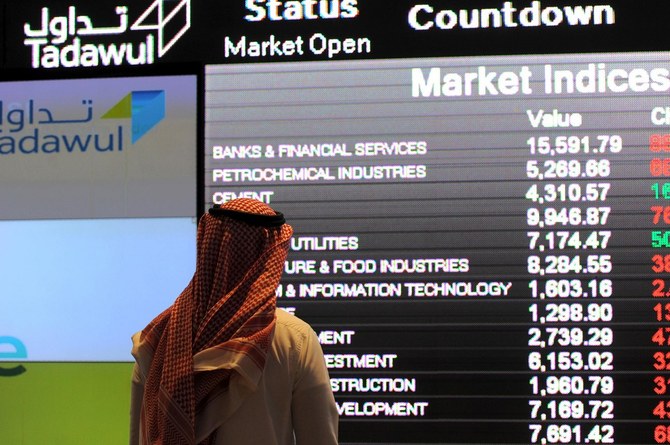
RIYADH: Saudi Arabia’s Tadawul All Share Index ended the week by gaining 6.68 points, or 0.05 percent, to close at 12,352.33 on Thursday.
The total trading turnover of the benchmark index was SR6.55 billion ($1.74 billion) as 120 stocks advanced, while 103 retreated.
The parallel market, Nomu, also gained 95.60 points, or 0.36 percent, to close the trading session at 26,457.81. This comes as 29 stocks advanced, while as many as 27 retreated.
On the other hand, the MSCI Tadawul Index slipped by 2.37 points, or 0.15 percent, to close at 1,547.20.
The best-performing stock on the benchmark index was Al-Baha Investment and Development Co., as its share price surged by 7.69 percent.
Other top performers included Raydan Food Co. and the Company for Cooperative Insurance, whose share prices soared by 7.29 percent and 6.63 percent, to stand at SR30.90 and SR160.80 respectively.
Electrical Industries Co. and the Mediterranean and Gulf Insurance and Reinsurance Co. also fared well during the last trading session of the week.
The worst performer was Saudi Chemical Co., whose share price dropped by 5.36 percent to SR7.77.
Power and Water Utility Co. for Jubail and Yanbu as well as the National Company for Glass Industries, underperformed as their share prices dropped by 5.22 percent and 4.82 percent to stand at SR63.50 and SR42.45, respectively.
On the announcements, Bank AlJazira announced its interim financial results for the period ending March 31 with net profit amounting to SR300.4 million compared to SR279.3 million in the previous quarter.
In an official statement on Tadawul, the bank attributed the increase in the net income to a decrease in total operating expenses by 6 percent.
“The decrease in total operating expenses is mainly due a decrease in net impairment charge for financing and other financial assets, other general and administrative expenses, salaries and employee-related expenses and other operating expenses against an increase in depreciation and amortization expenses,” the statement said.
Conversely, there has been a slight decrease of 0.2 percent in total operating income, primarily attributed to a reduction in net financing and investment gains. Additionally, the rise in net income was partially tempered by increased zakat charges over the period.
GCC central banks hold interest rates steady for 6th time following Fed’s move
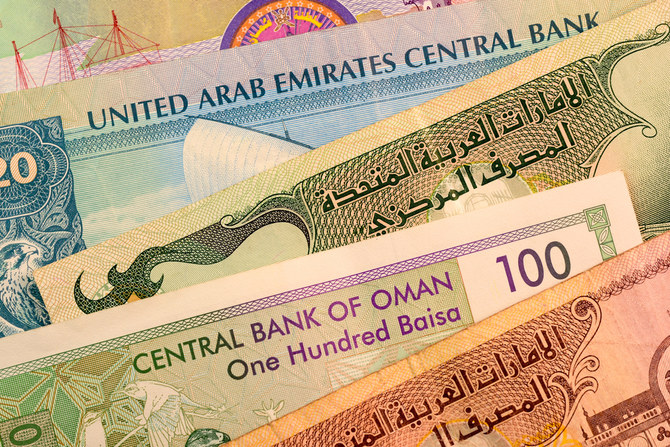
RIYADH: Gulf Cooperation Council central banks have held interest rates steady for the sixth time as the US Federal Reserve keeps its benchmark level between 5.25 percent and 5.50 percent.
As most currencies in the region are pegged to the US dollar, monetary policy follows the decisions taken in Washington, with policymakers opting to lock the rate at the level it has been since July.
The freeze comes as the rate-setting panel cites “a lack of further progress toward the committee’s 2 percent inflation objective.”
Vijay Valecha, chief investment officer at Century Financial, told Arab News: “This decision marks the sixth consecutive time that the central bank has chosen to keep rates unchanged. Market expectations have adjusted, now forecasting only one rate cut by year-end compared to the six anticipated at the beginning of 2024.”
He added: “The monetary policies of most central banks in the GCC countries, including the UAE, Saudi Arabia, Bahrain, Oman, and Qatar, typically mirror those of the Fed due to their currencies being pegged to the US dollar. Kuwait is the exception in the bloc, as its dinar is linked to a basket of currencies.”
Valecha continued by stating that as a result, interest rates in GCC markets are also anticipated to remain stable in the near future, which bodes well for the profitability of GCC banks.
This decision implies that the Saudi Central Bank, also known as SAMA, will maintain its repo rates at the current level of 6 percent.
The UAE central bank, along with Kuwait, Qatar, Oman, and Bahrain, also mirrored the Fed’s move.
Repo rates, which represent a form of short-term borrowing primarily involving government securities, underscore the close economic ties and financial dynamics between the GCC countries and the global economic landscape, particularly the US.
The US central bank also stated that it “does not expect it will be appropriate to reduce the target range until it has gained greater confidence that inflation is moving sustainably toward 2 percent.”
This indicates that rate cuts are not on the cards anytime soon, until inflation cools down and moves sustainably toward the 2 percent target set by the US Fed.
US car marker Lucid partners with KACST to advance EV technology in Saudi Arabia

RIYADH: US electric vehicle manufacturer Lucid Group and Saudi Arabia’s King Abdulaziz City for Science and Technology have inked a pact to boost EV technology development within the Kingdom.
As part of the deal, the California-based firm, in which Saudi Arabia’s Public Investment Fund holds a significant stake, will collaborate with KACST on joint research, utilizing the institute’s services, facilities, and products for dedicated research into advanced battery technologies and materials.
Additionally, they will conduct studies in aerodynamics, autonomous driving, and artificial intelligence technologies, according to a press release.
Faisal Sultan, vice president and managing director of Middle East, Lucid Group said: “Lucid’s goal is to inspire the adoption of sustainable energy by creating advanced technologies. This Memorandum of Understanding marks a key step towards achieving this vision, acting as a catalyst to advance and elevate the entire EV industry and inspire the adoption of sustainable transportation in support of the Kingdom’s vision for a more sustainable and diversified economy.”
The partnership between Lucid and KACST will also include research on electric vehicles, assessing their performance to ensure they are suitable for the climatic conditions in the Kingdom, the release added.
The joint research and development headquarters will be established at the national laboratories in KACST and are scheduled to launch during the third quarter of 2024.
“Using our state-of-the-art facilities, the research conducted under this project will advance electric vehicle systems and aid the development of technologies to support autonomous driving, in line with national aspirations for research, development and innovation in the energy and industry sector,” said Talal bin Ahmed Al-Sudairi, senior vice president of KACST for research and development sector.
The deal will see Lucid Group and KACST collaborating to leverage their expertise in scientific and technical research. Their joint efforts will focus on developing research programs geared toward creating technical solutions for the transportation and energy sectors, thereby bolstering the national economy.
In September 2023, Lucid opened its first plant outside the US in Saudi Arabia with an initial capacity to produce 5,000 EVs a year.
This came as the Kingdom’s government pledged to buy up to 100,000 vehicles from the company over 10 years.





